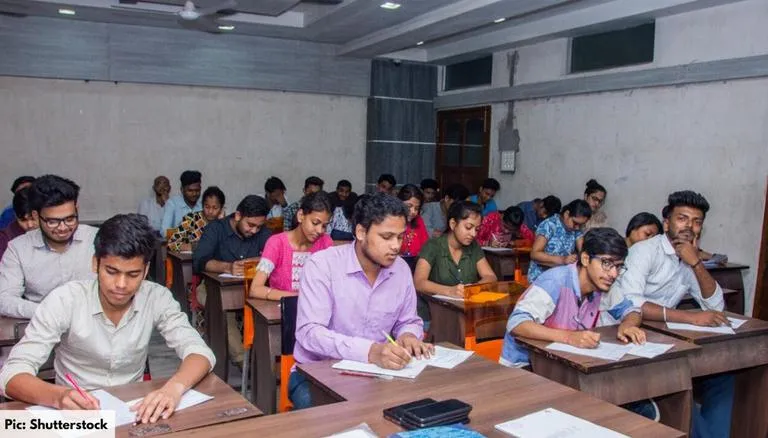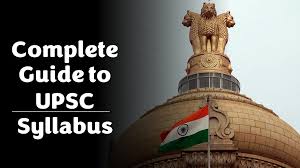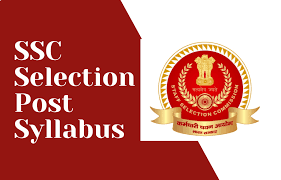Post Office Syllabus for job Preperation:-
Post Office Syllabus for job Preperation:

- General Knowledge: This section covers topics such as current affairs, Indian history, culture, geography, economics, and politics.
- Mathematics: This section covers topics such as basic arithmetic, algebra, geometry, mensuration, and trigonometry.
- English Language: This section assesses the candidate’s proficiency in English grammar, comprehension, vocabulary, and writing skills.
- Regional Language: This section tests the candidate’s proficiency in the regional language of the postal circle they are applying for.
- Reasoning and Analytical Ability: This section assesses the candidate’s logical reasoning, analytical ability, and problem-solving skills.
- Computer Knowledge: This section covers basic computer knowledge and applications.
- Postal Rules and Regulations: This section covers the rules and regulations of the Indian postal system, including postal procedures, products, and services.

To prepare for the Post Office exam, candidates should study the syllabus thoroughly, practice solving sample papers and mock tests, read newspapers and current affairs magazines, and improve their language and communication skills. Additionally, candidates should be well-versed in the postal rules and regulations and be familiar with the latest developments in the Indian postal system.
The Post Office Exam syllabus can vary depending on the specific job position and country or state in which the exam is conducted. However, here is a general overview of the syllabus and score distribution for the Post Office Exam:
- General Awareness: This section tests candidates’ knowledge of current affairs, history, geography, economics, and general knowledge. It usually carries a weightage of 25 marks.
- Indian History: This topic covers important events, personalities, and movements in Indian history, including ancient, medieval, and modern periods.
- Indian Geography: This topic covers the physical, political, and economic geography of India, including its states and Union territories, rivers, mountains, and natural resources.
- Indian Polity: This topic covers the Indian Constitution, political system, and governance, including the roles and responsibilities of the President, Prime Minister, and other important officials.
- Indian Economy: This topic covers the basics of Indian economy, including sectors like agriculture, industry, and services, and macroeconomic indicators like GDP, inflation, and unemployment.
- General Science: This topic covers fundamental concepts of physics, chemistry, biology, and environmental science.
- Current Affairs: This topic covers important national and international events, developments, and issues that are relevant to India and the world.
- Miscellaneous: This topic covers other areas such as sports, awards and honors, books and authors, and important dates and events.
- To prepare for the Post Office General Awareness section, candidates should stay updated with current affairs by reading newspapers, magazines, and online news portals regularly. They should also focus on understanding the basics of Indian history, geography, polity, economy, and general science, and revise important topics through notes and summaries. Solving previous years’ question papers and taking mock tests will also help candidates gauge their preparation and identify areas for improvement.
- English Language: Some of the key topics included in the Post Office English Language section are:
- Grammar: Candidates will be tested on their knowledge of grammar rules, including tenses, sentence structure, parts of speech, subject-verb agreement, and punctuation.
- Vocabulary: Candidates will be tested on their ability to understand and use a wide range of English words and phrases, including synonyms, antonyms, idioms, and phrases
- Reading Comprehension: Candidates will be tested on their ability to read and comprehend passages written in English, and answer questions based on the information presented in the passage.
- Writing Skills: Candidates will be tested on their ability to write clearly and effectively in English, including skills such as sentence construction, paragraph writing, and essay writing.
- To prepare for the Post Office English Language section, candidates should focus on improving their grammar and vocabulary skills by reading English language books, newspapers, and magazines. Practicing writing skills by writing essays, letters, and other types of compositions will also be helpful. Additionally, candidates can take online English language courses or hire a tutor to improve their English language proficiency.
- This section tests candidates’ proficiency in the English language, including comprehension, vocabulary, grammar, and usage. It usually carries a weightage of 25 marks.
- Mathematics: This section covers topics such as arithmetic, algebra, geometry, and trigonometry. It usually carries a weightage of 25 marks.
- Reasoning and Analytical Ability: This section tests candidates’ logical reasoning, problem-solving, and analytical skills. It usually carries a weightage of 25 marks.
The total marks for the Post Office Exam are usually 100. The exam may be conducted in an online or offline mode, and the duration of the exam may vary depending on the specific organization and country or state.

To score well in the Post Office Exam, it is important to have a strong foundation in these subjects, along with good time management and problem-solving skills. Practice previous year’s question papers and mock tests to improve your exam-taking abilities. It is also recommended to consult official sources for accurate and up-to-date information on the syllabus and exam pattern.
Computer Knowledge:
This section of the syllabus focuses on basic computer knowledge. The topics covered include:
Computer hardware and software
Internet and social media

MS Office (Word, Excel, PowerPoint)
Computer networking
Operating systems

Email and communication
The syllabus for specific positions in the Post Office Department may include additional topics or have a different emphasis, so it is important to refer to the official notification for the position you are interested in.






